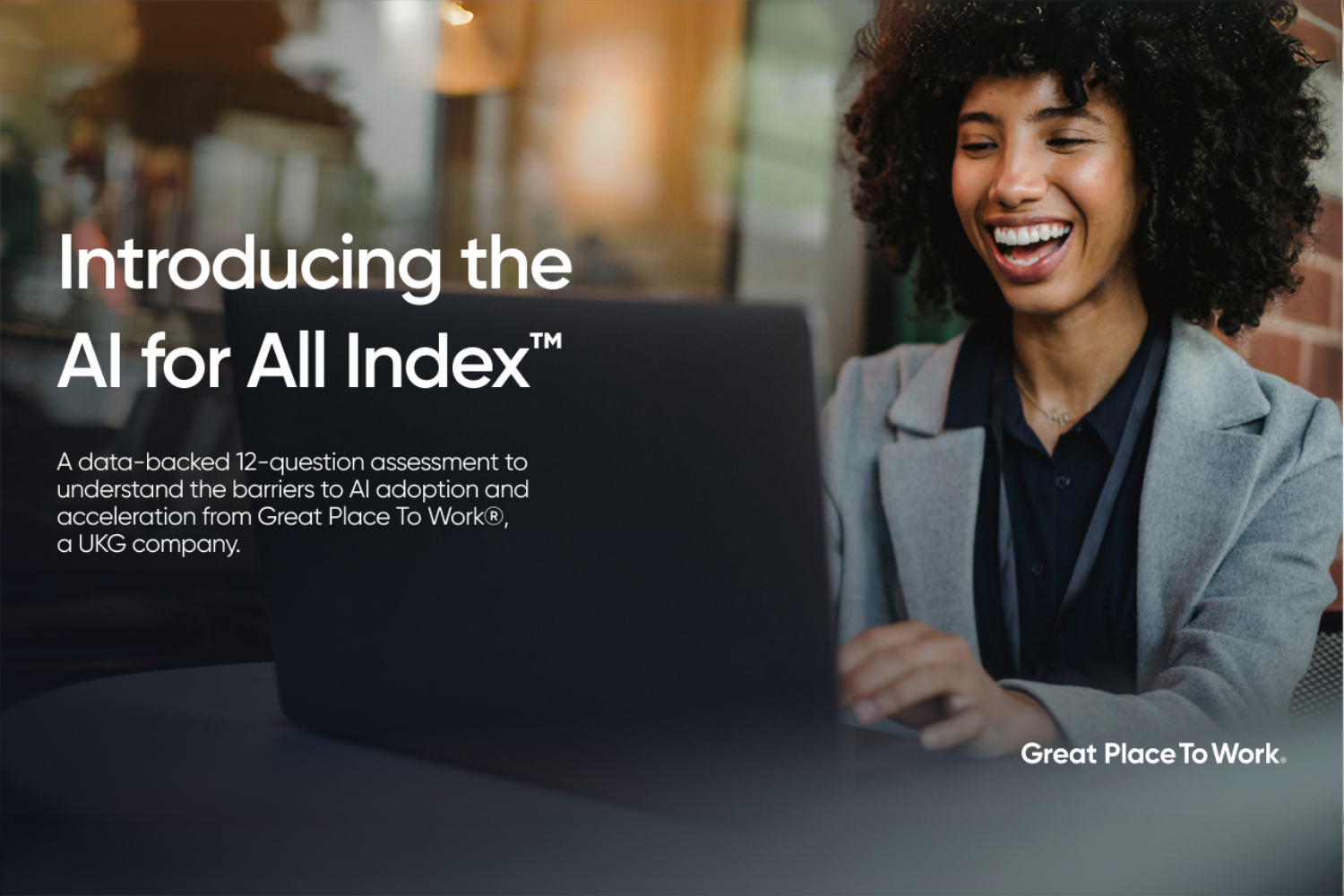Edelman’s 2025 Trust Barometer shows a growing number of global employees don’t trust their company to do what is right. Here’s what leaders can do about it.
In almost every country in the world, fewer employees trust their company in 2025.
That’s the top takeaway from the 2025 Edelman Trust Barometer, a global survey that has measured trust in institutions since 1999. For business leaders, the drop in trust is unprecedented, signaling frustration and anxiety in the global workforce.
Globally, the number of employees who trust their employer to “do what is right” fell three points to 75% in 2025. This decline is a potential sign of weakness for an institution that has enjoyed the highest level of trust compared to government, non-government organizations, or the media since 2021.
Why employer trust matters
At Great Place To Work®, our survey has been measuring employee trust for 30 years. In that time, companies with consistently high measures of trust dramatically outperform their competitors on important business metrics, from employee retention to stock market performance.
When employees trust the people they work for, enjoy the people they work with, and find meaning in the work they do, their company reaps the benefits. Companies that make the Fortune 100 Best Companies to Work For® List, compiled annually by Great Place To Work, outperform the stock market by a factor of nearly four.
If trust makes such a difference, even a small drop could be bad news for your company.
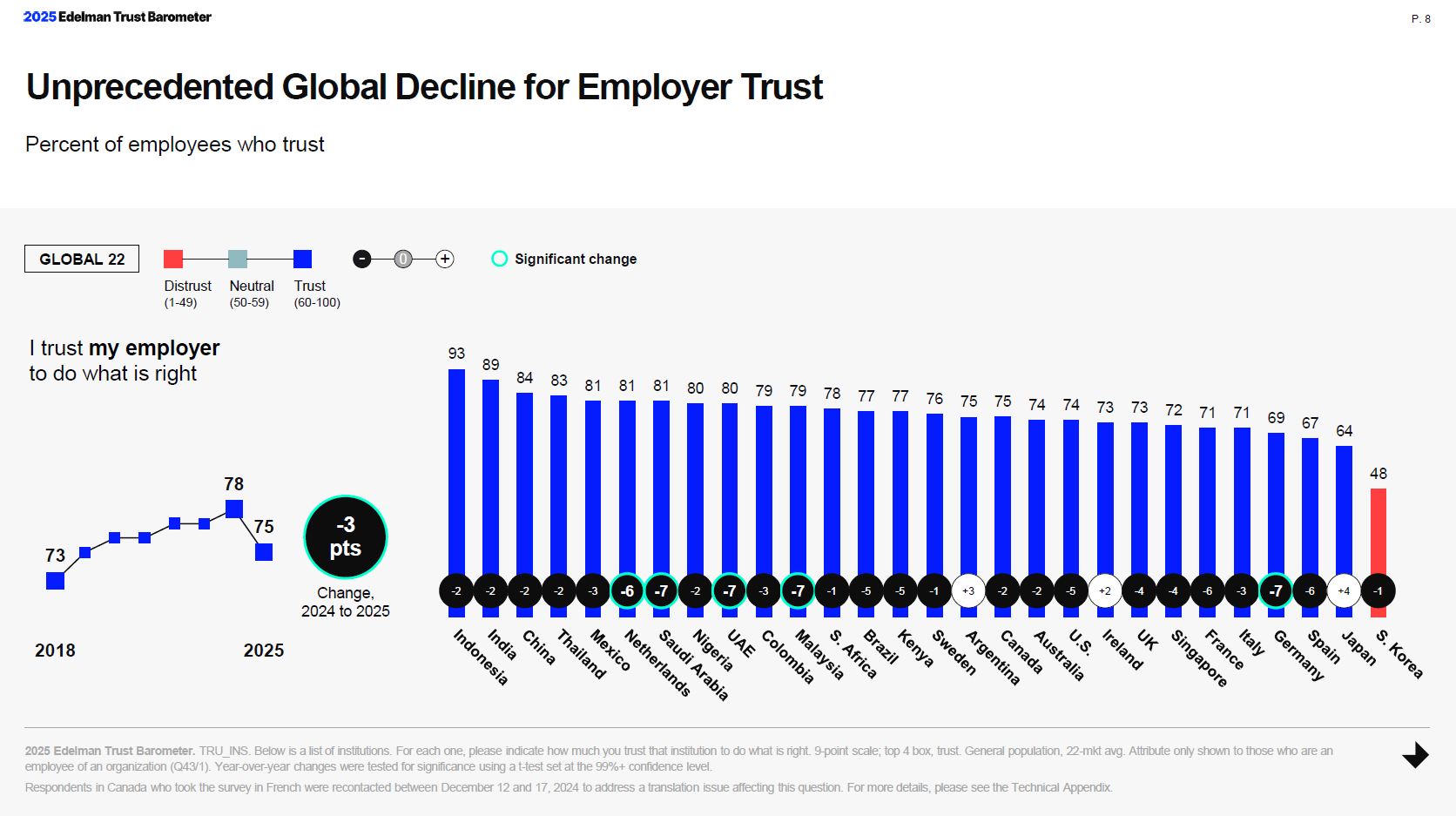
What is driving the decline in trust
Edelman’s research identifies a few key drivers of the global decline in trust, which could affect your workforce.
1. Financial pressure
Edelman found that respondents with higher incomes had more trust in institutions, including their employer. There was a 13-point gap in trust between incomes in the lowest quartile and the highest. This indicates that financial pressure has a direct impact on perceptions of fairness and honesty.
For leaders, this suggests a need to reconsider financial well-being support. The best companies have thoughtfully increased aid amid an affordability crisis in the U.S. and carefully evaluate compensation.
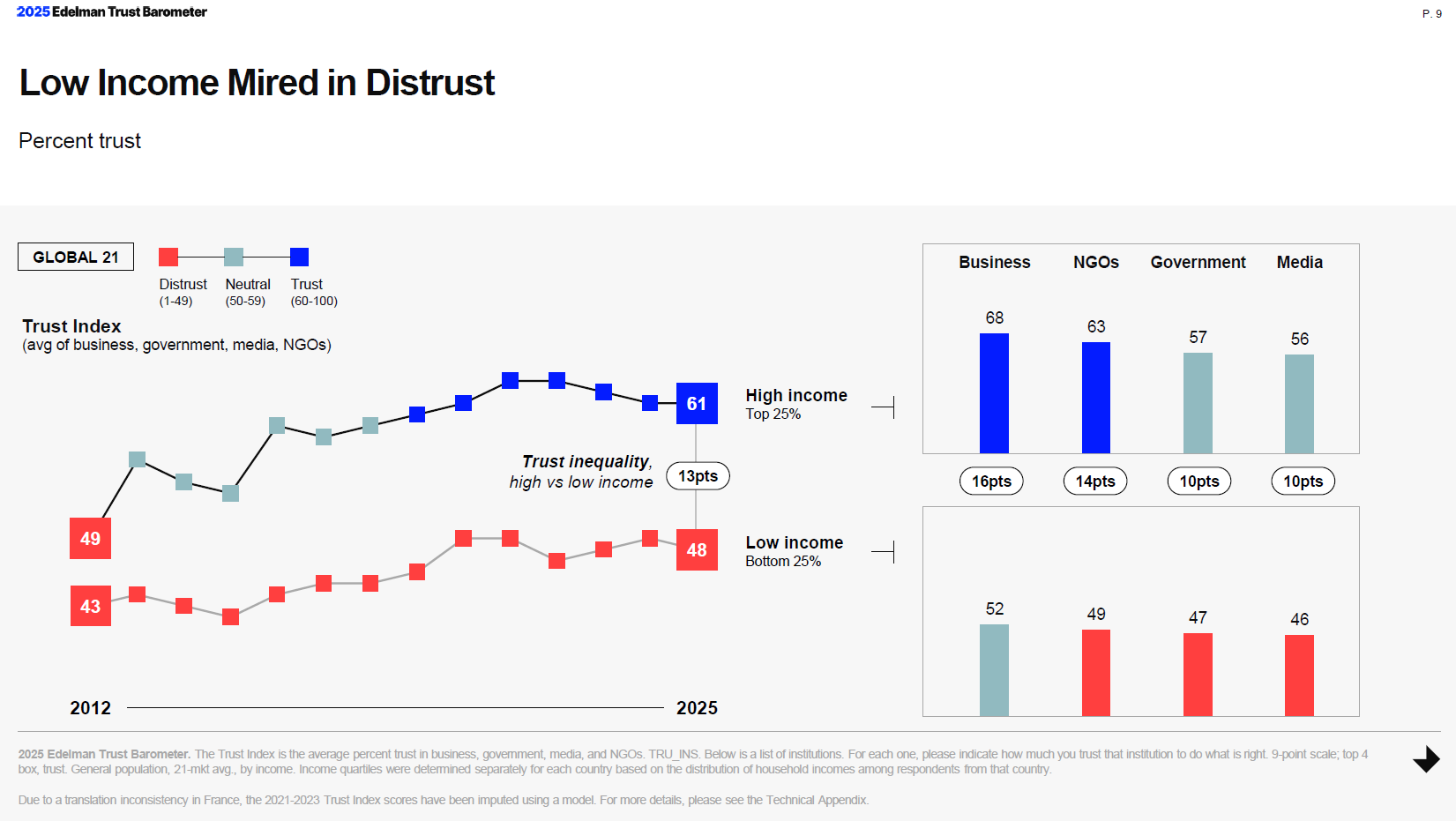
2. Credibility challenge for leaders
An increasing number of people are worried that top leaders in government and in business are not telling the truth. As a result, most leaders face a crisis in confidence that is reaching new heights in 2025. Globally, 68% of respondents say they are worried that business leaders purposely mislead people, a 12-point increase from 2021.
This means leaders are starting with a trust deficit and will have to earn trust with consistent communication and transparency in the year ahead. Great Place To Work research has found that leaders who adopt the nine high-trust leadership behaviors see the quickest progress on trust.
The most important behavior? Listening.
For leaders worried about losing their audience, now is the time to listen and engage with voices that are often unnoticed or overlooked.
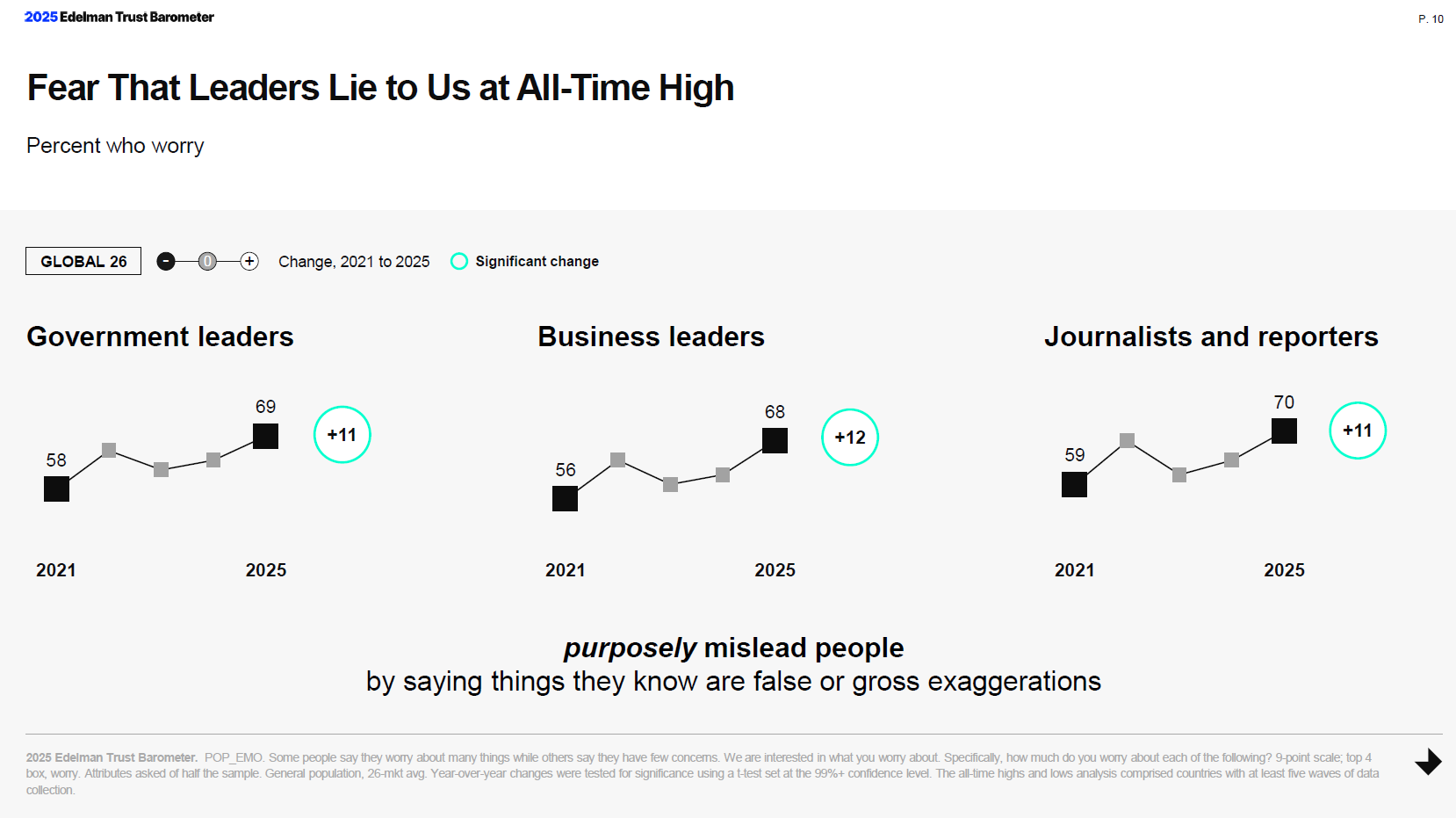
3. Employees worry about discrimination
Globally, fears about discrimination based on race, gender, or other kinds of prejudice surged 10 points between 2021 and 2025. In the U.S., the increase is 11 points higher over that period. This elevated concern about discrimination means that fewer employees feel they can bring their full selves to the workplace. They might feel less safe and have less faith in their organization to promote or pay fairly.
Great Place To Work research has shown that experience gaps in key demographic groups can predict how resilient your company is during an economic downturn.
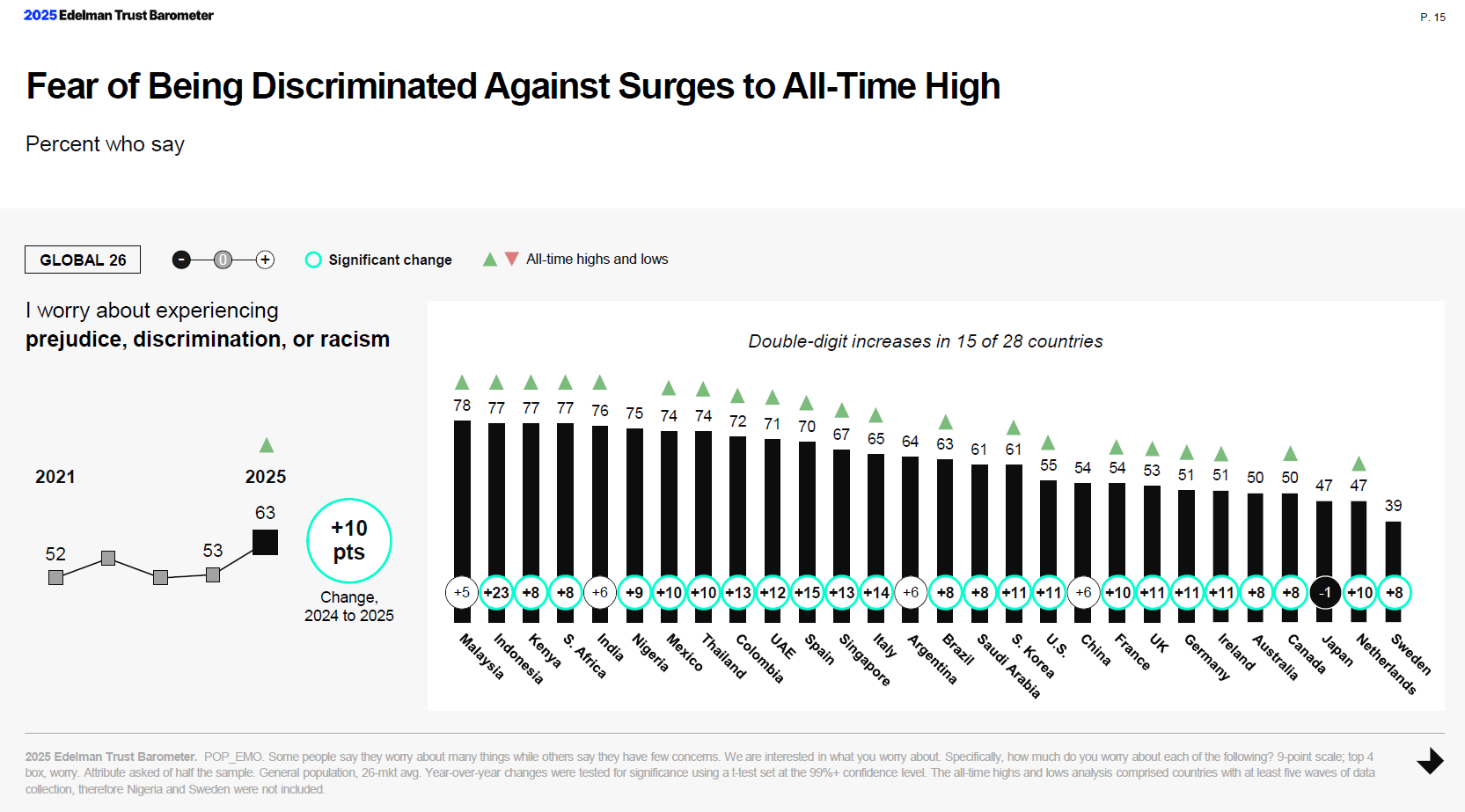
What leaders can do
What is the role of business leaders in reversing the global trust crisis?
Edelman’s report identifies two key areas where respondents want business leaders to act: create high-paying jobs and retrain workers for the new AI-powered era.
“The most pressing need is to restore economic optimism,” writes Richard Edelman in an op-ed for Fortune. “Our research tells us that when people see solutions, they’re more hopeful and willing to sacrifice for the greater good. When trust is earned, optimism grows.”
The rise of artificial intelligence presents both a risk and an opportunity for leaders to build a world where new technology supports higher levels of trust. That means training employees to use the technology and paying close attention to potential bias in the system. It requires transparent communication about how organizations and jobs will change.
If leaders get it wrong, they might do irreparable damage to a world order that is already on the brink.
“We can’t afford for this epoch-defining technological development to be the [next] trust shock,” Edelman writes, tracing the crises that have undermined trust since 1999, from the 2008 financial crisis to the COVID-19 pandemic.
That will be up to every leader, and the choices they make in the year ahead.







